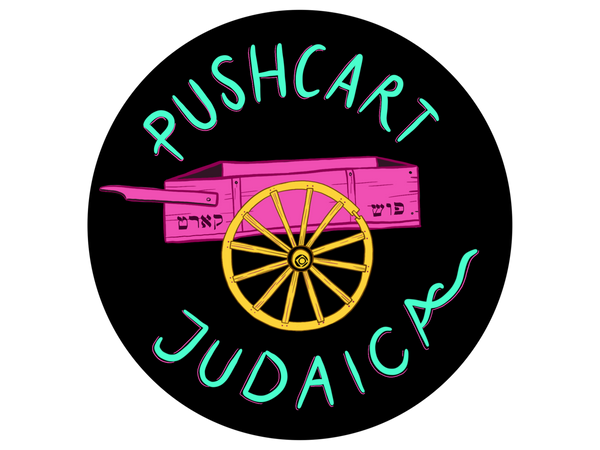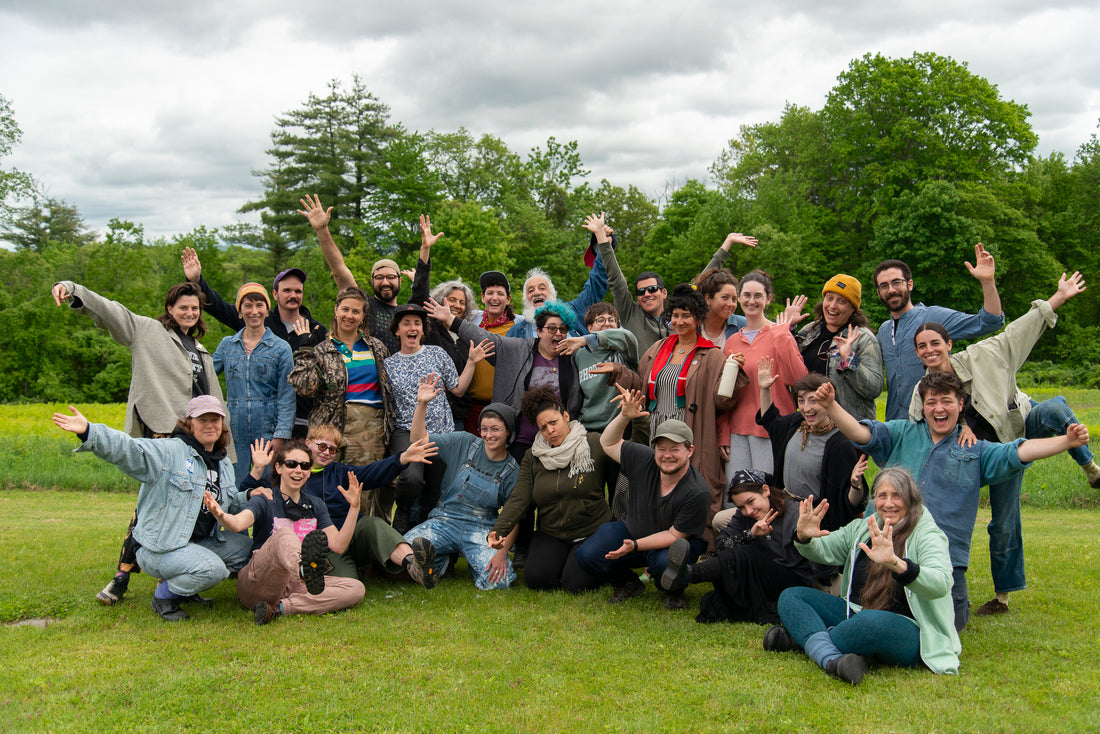
30 participants spent four days learning hands-on skills from Jewish educators on the margins, who have worked hard to learn about the production of Jewish ritual objects. These teachers are eager to transfer their knowledge to a new cohort of artisans.
This gathering built on the ground-breaking efforts of a first generation of historically excluded parchment-makers (and scribes), begun in the early 2000’s. Our goal is to support the next generation of makers to ensure the future of diasporic sacred arts is inclusive of those of us on the fringes and continues the long-standing Jewish tradition of crafting our ritual objects. Together, we will learn the first steps of making klaf (parchment) used for STaM (Sifrei Torah, Tefillin, Mezuzot), and shofarot, all of which are derived from animals. We will center diasporic production, land and animal welfare, and explore ethical alternatives to the current harmful supply chain. Throughout the weekend, we participated in hands-on demonstrations, heard talks, listened to sacred stories, and got the chance to practice some of these skills while building relationships and connections. Educators and ritualists leading us included Rabbi Linda Motzkin, Yonathan Reches, Aravah Berman-Mirkin, Rabbi Lynn Gottlieb, and others.

Our Vision
This retreat was in service to our larger vision of creating a guild of Jewish artisans located within the North American diaspora. This guild would include manufacturing and ongoing training in the creation of kosher klaf, tefillin and shofarot. Our values center on animal rights, and prioritize teaching individuals who typically would not have access to these skills including women, LGBTQ+ and disabled people. Given that there is no centralized place to learn these skills in North America, collaboration and creativity are essential for the longevity of this work. We envision a future where the origins of these ritual objects (animal hides and horns) are fully transparent, and the producers of these items are cherished and known in their communities. We dream of a guild of artisans producing objects rooted in relationships – between the fair treatment of animals, land, and the humans who tend them.
We pay homage to those we know who have helped pave the way for this retreat to be possible: Rabbi Linda Motzkin, Shoshana Guggenheim Kedem, Yonathan Reches, Shamu Sadeh, Adamah Farm Fellows including Simcha Halpert-Hansen and Soreh Ruffman, STaM Scribes, our ancestors who kept the chain unbroken, and those who we have yet to learn about.
7% of tuition fees donated to Native queer hide training, Niizh Manidook Hide Camp in Southern Ontario.

~ Lead Educators ~

Rabbi Linda Motzkin is one of a handful of women in the world trained as a soferet (scribe) and the only one who is making her own parchment for the Torah scroll she is writing. She founded the Community Torah Project, a long-term educational endeavor to produce a Torah scroll involving the hands-on participation of people of all ages. Through her teaching programs, she has brought the process of making a Torah scroll to Jewish communities across the country and internationally, enabling individuals of all ages and abilities to participate in various steps in the making of a Torah scroll, such as processing deerskins donated from local hunters into parchment panels, proofreading letters on completed panels, and stitching fully proofread panels together. Rabbi Motzkin recently retired from her position of co-rabbi of Temple Sinai in Saratoga Springs, New York after 36½ years of job-sharing with her husband Rabbi Jonathan Rubenstein. https://breadandtorah.org/
Linda lead a two part Parchment-Making Intensive (combo hands-on and demo) and Exploring Torah as a Ritual Object.

Yonathan Reches is a hide worker and scribe working out of Norman, Oklahoma. In 2022, his search for vegetarian-compatible tefillin and mezuzot led him to start collecting roadkill for parchment and batim. He is passionate about the egal community's spiritual self-sufficiency in the realm of kedusha, and he is working to reverse-engineer skills that have traditionally been known only to Orthodox craftsman, such as making batim and spinning sinew thread. With a background in materials science and civil engineering (and a day job in program management), Yonathan has scoured the internet for information about these arts, recently completing the first-ever pair of egalitarian-made tefillin. He works with Ot Tikkun, a collective of part-time hide workers and scribes, in order to create humane, egalitarian kedusha and to involve the Jewish community of Central Oklahoma in maintaining its Torah scrolls. https://www.thekedushaproject.org/
Yonathan lead a hands-on Gid (Sinew) Spinning Workshop and a Tefillin Making Show and Tell Class.
~ Ritualists + Educators ~

Rabbi Lynn Gottlieb is one of the first women to become a rabbi in Jewish history, is a pioneer Jewish feminist, human rights activist, writer, visual artist, ceremonialist, community educator and master storyteller. Lynn has been a congregational rabbi since the fall of 1973, and founded the Congregation Nahalat Shalom in Albuquerque, NM, in 1980. Lynn engages in multifaith, intergenerational and multicultural organizing in solidarity with racial, indigenous, gender justice and Palestinian liberation struggles. Currently, Lynn sits on the Rabbinic Council of Jewish Voice for Peace and is board chair of Interfaith Movement for Human Integrity and is the author of several books. www.rabbilynngottlieb.com
Retreat Co-Organizer

Aravah Berman-Mirkin (they/them) is a gleaner and artist with over 20 years of experience creating functional 3D art in an array of materials, much of which is foraged or sourced locally. They trained as an architect at the School of Architecture at the Cooper Union, after which they studied agriculture through the apprenticeship model in the Hudson River Valley of New York. Aravah co-founded and currently runs Long Table Harvest, an organization that gleans and distributes surplus food from farms. Since 2019, Aravah has focused their creative practice on the production of a wide range of judaica for Jews in the diaspora, including shofarot, and is one of the only people in North America producing them for sale. Their immediate family roots are in the former Soviet Union (Ukraine) which has deeply shaped and informed their creative practice and relationship to Judaism. https://www.zhydovka.me/

